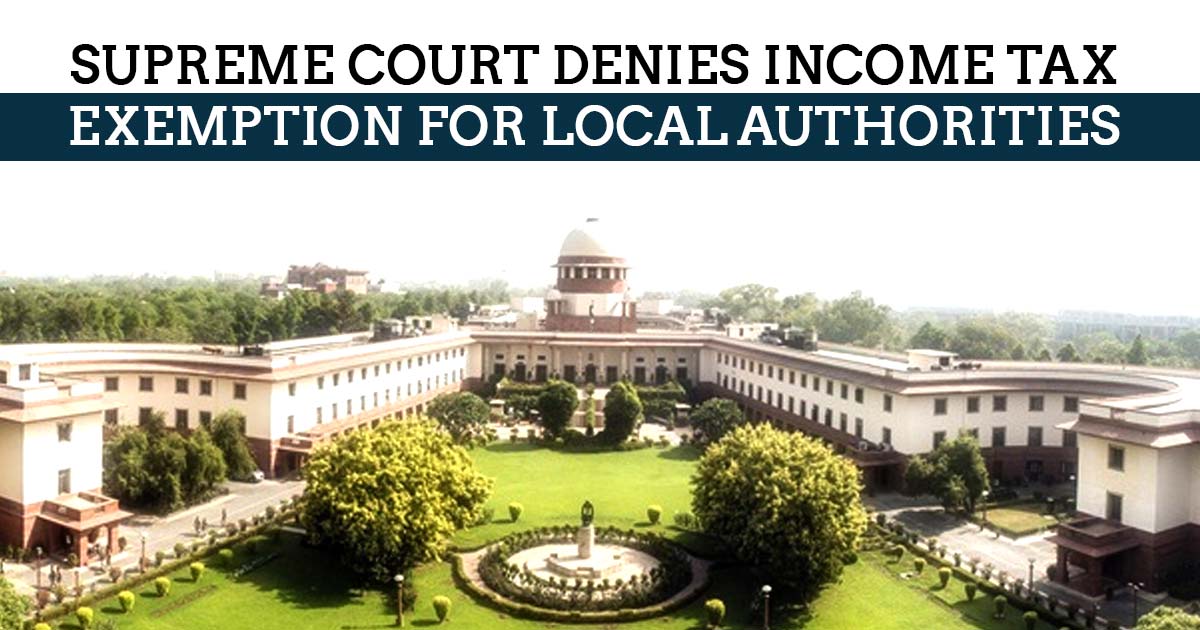The local authorities who are under the law of the state will not get an exemption in income tax, said the Supreme Court. An order of the Rajasthan High Court was canceled by the Supreme Court as it ruled this decision. Under the Rajasthan Urban Improvement Act, 1959, the Supreme Court gave this decision regarding Urban Improvement Trust.
The Court explained that the local authorities may be providing services in urban areas that come under municipality or municipal boards, but that doesn’t make them same as a municipality or municipal boards. In the old section 10 (20A) of the Income Tax Act in 2002, the removal of ‘Authorities’ was an indication that this facility was not available earlier to such authorities who are taking advantage of the exemption, the Bench said.
Read Also: The Fake News About Extension of Income Tax Audit Due Date
On the taxation of local authorities, this decision has simplified the position, said Grant Thornton LLP’s National Leader (Tax) Vikas Vashal. Local authorities cannot be considered as ‘municipality’ for tax exemption even if they work like the municipality. Voss told ET, “This decision will have an impact on such authorities made under the laws of states.” The tax liability of the Taxpayers, who pay rent and other payments to such authorities, will now be reviewed based on the payments.
In the jurisdiction of the Income Tax Act, various items will be exempted by the local authority. Income includes income, income from the supply of commodity or service, except water or electricity, income from house properties and other sources. The definition of ‘Local Authority’ in the Income Tax Act was given under Section 10 (20A) and a tax regime was given to such authorities. But later, this section was removed by the Finance Act 2002 and it changed the definition of ‘Local Authorities’ and reduced the scope.
Recommended: Why Paying Tax is a Human Right and a Civil Duty?










